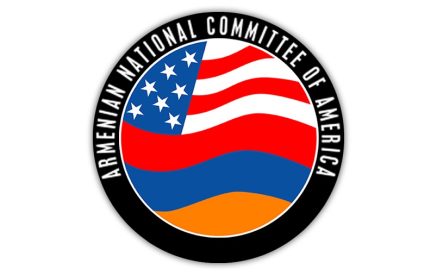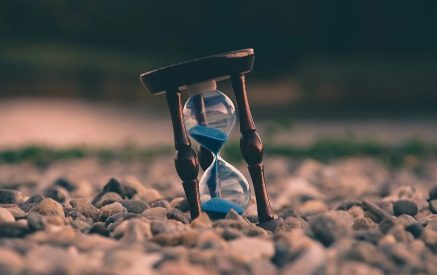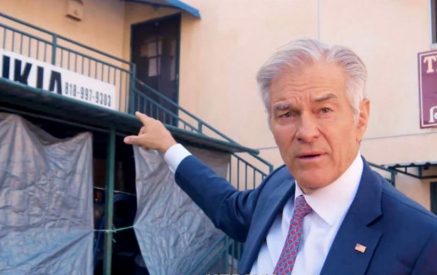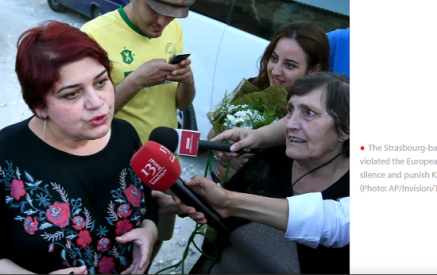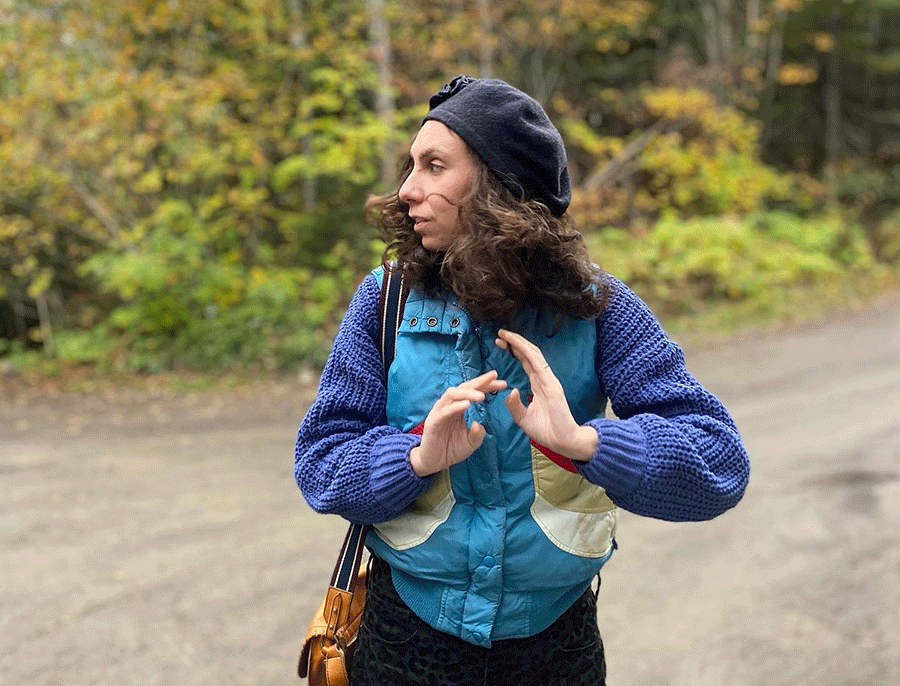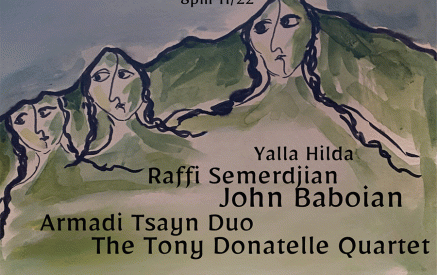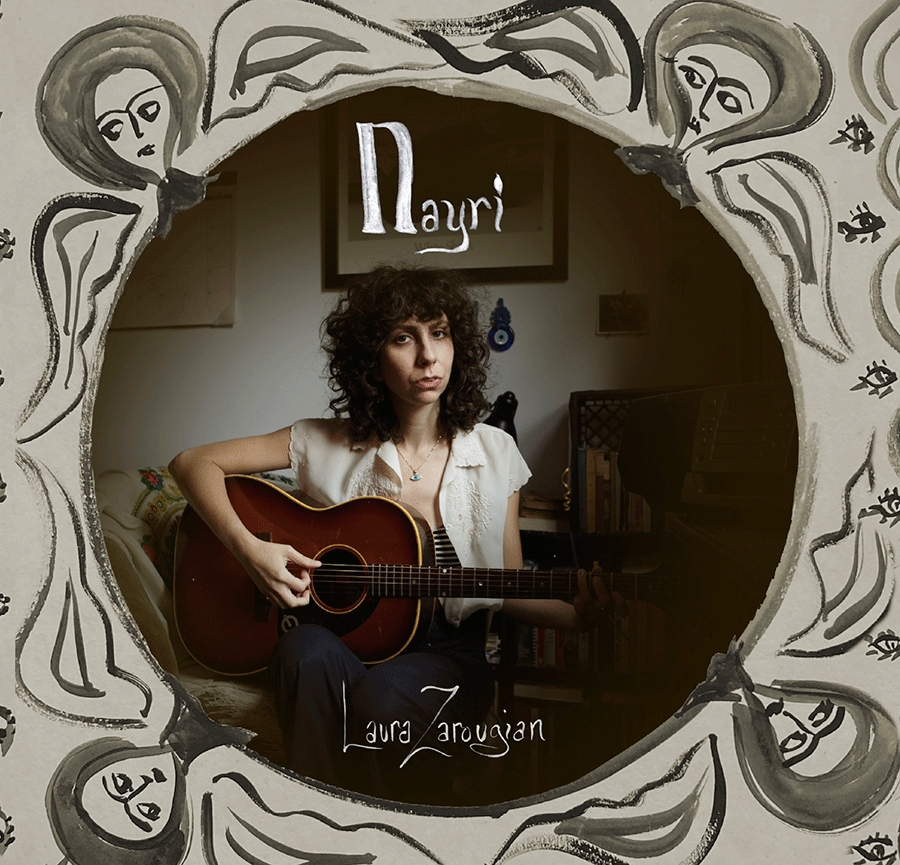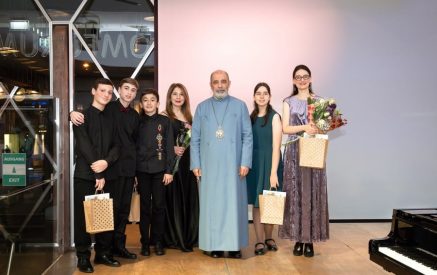by Knar Bedian
Amidst the slow trod of acoustic guitar strums and tinkling bells, Laura Zarougian sang about the Nile and shared a story once told by her 102-year-old grandma Chaké. “My grandmother’s father died while he was on business in Luxor,” Zarougian said about her song, “Cairo.” Her family was given a choice: receive a lump sum of money from his company or bring his body back to Cairo. “Even though they were destitute, they had this sort of Armenian duty and honor and needed to have a proper funeral,” she said. As she sang the Egyptian capital’s name, Zarougian’s voice sounded filled with yearning. “I wonder what she [Grandma Chaké] would think of this music,” she said.
Laura Zarougian is a multi-instrumentalist based in New York whose lyrics often draw from Armenian themes and present a strong sense of place. Though her music is more similar to that of indie folk duo First Aid Kit or Americana icon Emmylou Harris than it is to traditional Armenian sounds, Zarougian noted her songs are “Armenian stories wrapped in folk Americana.” Instead of being accompanied by a dumbeg or oud, Zarougian’s voice swirls around the twang of the pedal steel guitar or occasionally transforms into a yodel. Her country-folk sound is reflective of some of the music she grew up listening to: her parent’s extensive cassettes (featuring the likes of Paul Simon) and songs played on Boston’s folk radio station, WUMB.
Thanks to the patience of her mother, she trained her ear to sing in tune when she was younger. “My mother would sing ‘Edelweiss’ over and over again until I could sing it in tune,” Zarougian explained. She was also inspired to learn to play violin upon seeing a “woman ripping it up with an American fiddle,” and her curiosity later led her to pick up the lute and guitar, the primary instrument she plays on her upcoming debut album.
Zarougian and her partner, drummer Mike Alan Hams, recorded the album Nayri in Boston after leaving Brooklyn during the pandemic. The lack of live shows as a result of the COVID-19 pandemic meant the pair finally had time to record. “This is the time to go in and do it, while the songs are still in our fingers,” she recalled thinking to herself. It was during this time that she wrote the title track “Nayri,” a song that references the quaking leaves of poplar trees and touches on a decision many diasporan Armenians grapple with—to choose to continue to live in the diaspora or to repatriate to Armenia.
The theme of searching for home and the return to home is one that crops up again on “Back to Piran,” a track with an electric guitar solo that ends with the soft crashing of cymbals. “Piran is where my maternal grandfather’s family is from. It’s a composite of family stories about exile,” Zarougian said. “The chorus is about people not returning, hoping that someone will return, hearing word that someone got killed along the way.” It’s also a song that reveals one of the ways Zarougian stayed connected to the Armenian language. “My mom would sing me lullabies in Armenian. That was one of the main ways I heard Armenian growing up,” she said. On the song “Back to Piran,” Zarougian sings, “You rocked me to sleep when I was just a girl / and the songs my mama sang me that her mama sang before / what I wouldn’t give to hear you sing once more.” Though many diasporan Armenians can no longer physically access their homelands, music – like Zarougian’s lullabies – is a way to reconnect with the culture, community and life that was robbed from them during the Armenian Genocide.
When discussing the potential of exploring more traditional Armenian music on future songs – as well as her search for vinyl records of old kef music – Zarougian shared an idea for a new blend of sounds. “Someone needs to take a pedal steel [guitar] and do a mash-up with traditional Armenian instruments in a monastery,” she said with a smile. Perhaps that’s something for us to look forward to on her next record.





























